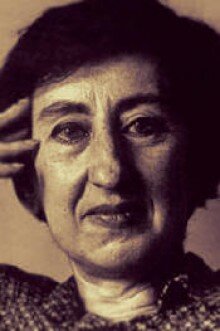
Luiza Neto Jorge was born in Lisbon and in that city died, shortly before her fiftieth birthday, but most of her poetry was written in Paris, where she lived from 1962 until 1970. She published two chapbooks, in 1960 and 1961, before going to France, and after returning to her hometown she wrote and published poems sporadically (including a few in French), but at that point most of her literary activity was centered on translation. The many, mostly French authors whose works she rendered into Portuguese include Stendhal, the Marquis de Sade, Verlaine, Michaux, Artaud and Yourcenar. She also adapted several texts for theater and wrote dialogues for cinema.
Regarded as one of the outstanding poets to emerge in Portugal in the early 1960s, Luiza Neto Jorge is also the most difficult to apprehend. She was a poet in constant revolt, not only or openly against Salazar’s so-called Estado Novo [New State], or the traditional norms of society, or the subordinate status of women, but against the very way thought and language typically happen and poetry is made. Her poems break the usual laws of reason and of reasonableness. The subject is often unstable, the narrative of what’s happening tends to be fuzzy, there are unexpected shifts in register and point of view, and stanzas or entire poems may feel unresolved. Which may make the reader feel dissatisfied.
The poetry of Maria Teresa Horta (1937), who began publishing at the same time as Luiza Neto Jorge, vindicated woman’s right to be a sexually desiring subject as well as a desired object. (She would gain international renown as one of the “three Marias” who co-authored the militantly feminist and erotically uninhibited Novas Cartas Portuguesas [New Portuguese Letters], in 1972.) In Luiza Neto Jorge eroticism permeates the images and the very language of poetry. If the houses of her homonymously titled poem (see Houses) are personifications of feminine sexuality, the poetic vocabulary of The House of the World is invaded by names of and allusions to body parts; a simple birthmark becomes a world replete with sexualized memories (“erotic cobwebs”) and worlds within worlds (the hallway of the third stanza, or the oval mirror of the fifth). All these houses, like her poems in general, are open spaces, accommodating the world at large.
Something of Surrealism’s free and extravagant associations seems to characterize Jorge’s poetry, which does not depend, however, on automatic or unconscious processes. It seems ultraconscious, hyperreal, but averse to the typical processes of poetic representation. Writing, for this poet, is not an ascension into the lyrical realm but a probe into what is closest to home: minimal things ( Magnolia), the body ( Head in an Ambulance), everyday sights and sounds ( Waking up on the Street of the World).
The critic Rosa Maria Martelo cites verses from one of Jorge’s poems in French – “Jamais je n’obéirai./ Je répète: jamais.” [I will never obey. I repeat: never.] – to support her explanation of the poet’s eroticism as transgression and excess. One of Jorge’s poems is titled ‘O Corpo Insurrecto’, and this “rebellious body” is not only the eroticized physical body that submits to no law, following only its own inordinate desires; it is also the body of the poem that refuses to be tamed, that forever behaves in extreme, ‘unacceptable’ ways. The critic also cites Georges Bataille’s observation (in L’Érotisme) that the erotic experience is unspeakable; it bids us to silence. Something similar occurs when we read the poems of Luiza Neto Jorge. It isn’t easy to speak about them, much less explain them. They are what they are – to be quietly appreciated, or not.
Bibliography
Poetry in Portuguese
A Noite Vertebrada, 1960
Quarta Dimensão, 1961
Terra Imóvel, 1964
O Seu a Seu Tempo, 1966
Dezanove Recantos, 1969
Os Sítios Sitiados, 1973
A Lume, 1989
Poetry in French
Prélude pour sexe et rêve. Tr. Marie Claire Wromans, Brussels, 1994
Par le feu. Tr. Christian Mérer and Nicole Siganos, Nantes, 1996
Poetry in Catalan
Destrets d’indret. Tr. Arnau Pons, Lleida, 1999

